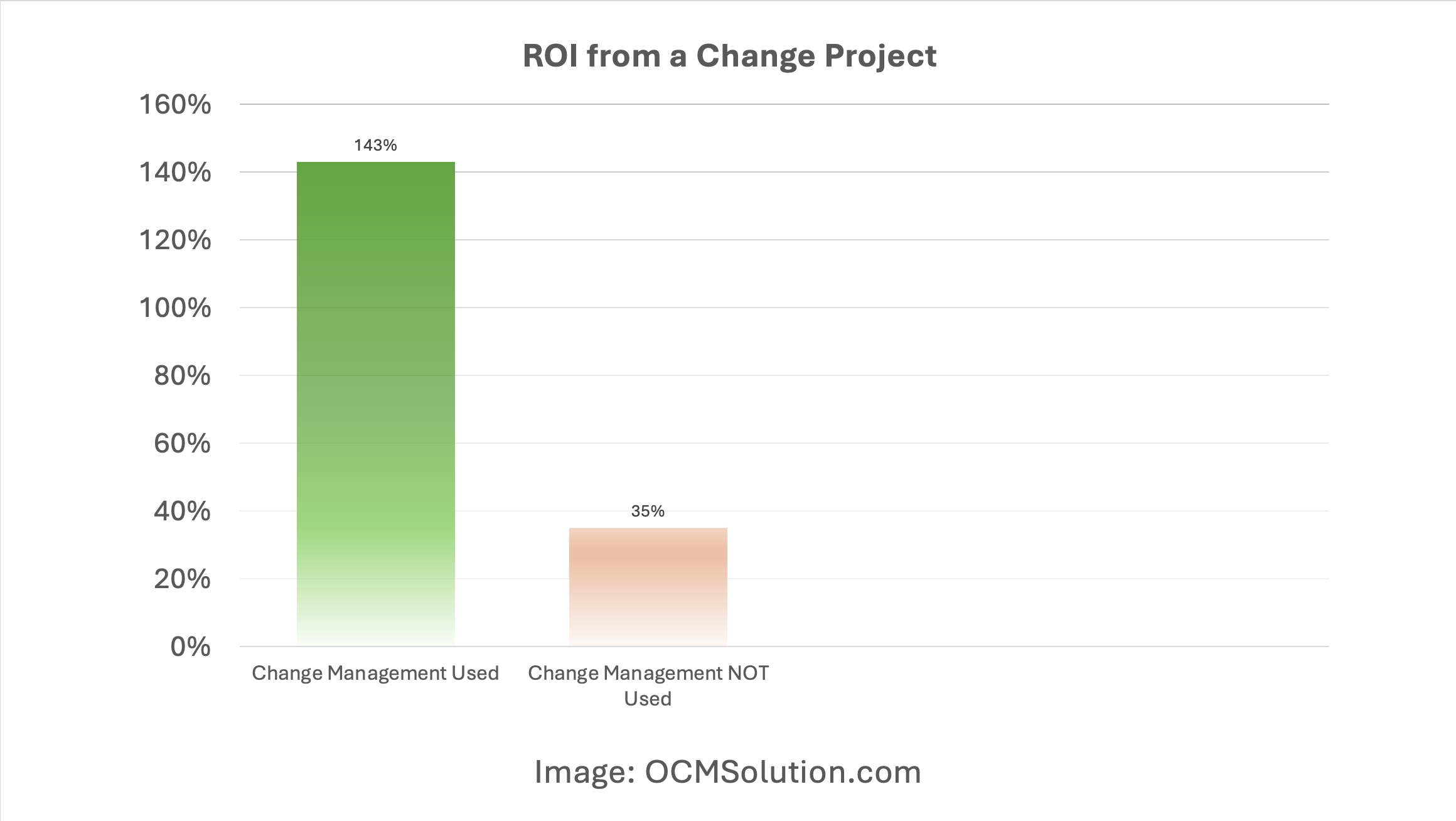Navigate Your Business Out Of Change Disruption
Visualize this: your organization is a sleek, high-performance car. It purrs along the highway of success, but a storm of change is brewing on the horizon. New technologies emerge, customer preferences shift, and the competitive landscape takes a sharp turn. To stay ahead, you need to adapt. But how do you navigate those sharp corners without spinning out of control?
That’s where change management comes in. It’s not about forcing your car to screech to a halt and undergo a complete overhaul. It’s about a smooth pit stop, making adjustments to ensure your vehicle (and your organization) can handle anything the road throws your way. But why manage change? and why is change management important?
Buckle up, because in this article, we’ll explore everything you need to know about change management – the secret weapon for navigating change and driving your organization towards a thriving future. We’ll answer the important question to help you fully understand change management, why is it important for driving successful organizational transformations?

Story Highlights
|
Transform Wisely: Utilizing the Power of Change Management
Organizations face constant pressure to adapt and evolve. New technologies, shifting consumer behaviors, and a competitive landscape all necessitate change. However, simply wanting to change doesn’t guarantee success. This is where change management comes in.
Change management provides a structured approach for managing the human aspect of organizational change. It focuses on the people who need to adjust their workflows and behaviors for the change to be successful. This targeted approach offers several key benefits:
- Increased Agility: Organizations can adapt more readily to emerging technologies and market shifts.
- Reduced Risk of Failure: Poorly managed change projects can have a negative impact on ROI and customer satisfaction. Change management helps mitigate these risks.
- Building a Culture of Change: Successful change fosters an environment where adaptation is seen as positive and continuous improvement is encouraged.
Why is change management important? Because even the sleekest business can stall on the road to success without a roadmap for navigating the inevitable twists and turns of change.
Don’t Let Change Derail Your Project: How to Overcome Employee Resistance
A significant number of change projects fall short due to a lack of focus on the human element. When employees resist change due to unclear communication, lack of leadership support, or a natural aversion to disruption, the entire project can falter. Change management addresses these issues by:
- Prioritizing People: It recognizes that employee buy-in is crucial for successful change.
- Addressing Resistance: It helps identify and overcome resistance through communication, training, and support.
- Ensuring Clear Communication: Effective communication about the change, its rationale, and its impact on employees is paramount.
Resistance is a major obstacle to successful change. Change management helps organizations address resistance effectively, removing a significant barrier to achieving desired outcomes.
6x Your Success Rate: Why Change Management is the Secret Weapon
While a successful change project is a major benefit, the value of change management extends further:
- Increased Innovation: Organizations become more open to new ideas and willing to experiment.
- Improved Employee Engagement: Employees feel supported and invested in the change process.
- Positive Bottom-Line Impact: Improved morale, innovation, and efficiency lead to financial gains.
- Enhanced Communication and Collaboration: Change management fosters better communication across all levels.
Studies by McKinsey and Prosci demonstrate the tangible benefits of change management:
- Organizations that prioritize change management see a significantly higher ROI on their change projects.
- Projects with excellent change management practices are six times more likely to meet or exceed objectives.
Change management: why is it important? It’s the key to unlocking the potential of change, ensuring a smooth transition and maximizing its benefits for both the organization and its people.
From Risk to Reward: How Change Management Turns Disruption into Opportunity
Organizations that embrace the value of change management are better positioned to thrive in a dynamic environment. They can continuously adapt, innovate, and create a culture of resilience. By integrating change management best practices, organizations can achieve better results, reduce risks, and build a stronger foundation for the future.
Do you have any questions or feedback on why is it important to manage change? We’d love to hear from you. Reach out here.
What is the True Value of Change Management? Everything You Need to Know
The English naturalist Charles Darwin once said, “It is not the strongest or most intelligent who will survive but those who can best manage change.”
While he may not have been specifically describing the organizational change, the observation still applies.

Why Change Management?
Organizations have to continually change and adapt to stay competitive, adjust to buyers’ behaviors, and optimize their processes and productivity. Just because an organization wants or needs to change, doesn’t mean that change will happen successfully.
That’s where change management value comes in. Change management provides a process by which organizations can manage the most important part of the change, the people whose workflows will be changing.
The Need for Agility and Change
The speed of technology is rapid in today’s world. Organizations that aren’t agile enough to adapt to new cloud technologies and AI-driven systems will quickly fall behind.
Organizations don’t have a choice but to change to keep up. However, they do have a choice in how change is managed.
Why change management? Because if the change is not managed successfully, then organizations can face costly consequences. A change may end up with a negative ROI or cost them customers if things don’t go smoothly.
Companies not only need to understand and embrace the value of change management, but they also need to create a culture that has the ability to easily adapt to change.
To do that, they have to master the art of change because successful change projects pave the way towards more success in managing change in the future. This means change management value is exponential as a company continues to evolve.
See Also: Best Change Management Plan with Templates & Samples
Why Do Change Projects Fail?
A significant number of change projects fail because executives focus too much on what the change means for the organization, and not enough on what the change means for the people that have to change their habits and behaviors for the change to happen.
That’s why change management is so important; it puts the “people” part of change front and center.
Some factors that contribute to the failure of change projects to achieve their desired outcomes include:
- Employee resistance to the change
- Lack of leadership help to drive the change
- Poor communications
- Budget shortfalls
- Failure to see the value of change management
- Lack of resources
- Too much focus on process over people
Change management value can be seen in the fact that approximately 72% of change failures are due to a lack of support for a change by management and employees. These are two areas that are addressed by change management tools and best practices.
Here’s Why Change Management Focuses on People
Wondering why change management is so focused on people and how a change impacts them? It’s because people can either make or break a change project.
No matter how great a proposed organizational transition looks on paper, it can’t happen successfully if employees don’t adopt the new behaviors and processes necessary to implement the change.
And people are naturally resistant to change.
It’s human nature to resist things that take us outside our comfort zone. Herein lies the value of change management – it accepts that people will naturally resist change and understands that that resistance can ruin a change project.
So, change management puts in place strategies and best practices designed to address that natural resistance to change and transform it into acceptance and support.
Once the people in an organization change and adopt the new behaviors necessary for the change, the organization then changes. It’s all dependent upon the people, which is why people are the focus of change management.
Don’t Miss: Tips for Dealing with Resistance to Change
Contact us if you have any questions or feedback about this guide on why change management is important in an organization.
Change Management Value
The value of change management can be felt throughout an organization and goes beyond just the success of the change project, although that’s one of the biggest benefits.
By implementing change management to drive organizational change properly, from the bottom up, organizations can realize additional benefits such as:
- An ability to innovate and adapt more easily
- A spirit of organizational pride
- More driven and dedicated employees
- Positive bottom-line benefits
- Improved communications
- Better teamwork and collaboration
Thanks to studies by McKinsey and Prosci, we can also speak to change management value when it comes to KPIs like ROI and the ability to meet or exceed project objectives.
According to a study by McKinsey, organizations that did not see why change management was important and did not use it, saw only 35% ROI on their change projects. That means out of every $1.00 spent on the project, the organization lost 65 cents.
However, those organizations that did recognize change management value and used it, saw a 143% ROI. So, out of every $1.00 spent on the project, they gained an additional 43 cents.

A Prosci study looked at 10 years of organizational change projects and over 2,000 data points. It was found that organizations using excellent change management practices for their projects are 6x more likely to meet or exceed objectives than those using poor change practices.
Managing Resistance is Key to Successful Outcomes
When looking at change management value, managing resistance is one of the core responsibilities of change managers is also one of the biggest keys to successful change outcomes.
With a majority of change projects failing because of resistance from employees, managing that resistance properly takes away a huge barrier to a change meeting or exceeding the desired outcome.
One reason why change management is so important is that it addresses resistance and puts a framework in place to resolve and move past it.
Related: What is Change Management?
Achieving the Full Value of Change Management
Organizations that understand the value of change management have the best chance of being able to continually innovate, adapt to outside events, and create a culture of innovation.
By integrating change management methodologies and best practices in all change projects, companies can achieve better outcomes, higher ROIs, and avoid many of the pitfalls of those who don’t manage change well.
Understanding why change management focuses on people first will give leaders insights that can improve all areas of their organization, making it stronger and more agile.
Those who can best manage change will be the ones that not only survive, but also blaze a trail for others to follow. All because they saw the value of change management.
Note: Content on OCM Solution's ocmsolution.com website is protected by copyright. Should you have any questions or comments regarding this OCM Solution page, please reach out to Ogbe Airiodion (Change Management Lead) or the OCM Solutions Team today. OCM Solution was previously known as Airiodion Global Services (AGS).
Image: stock.adobe.com





